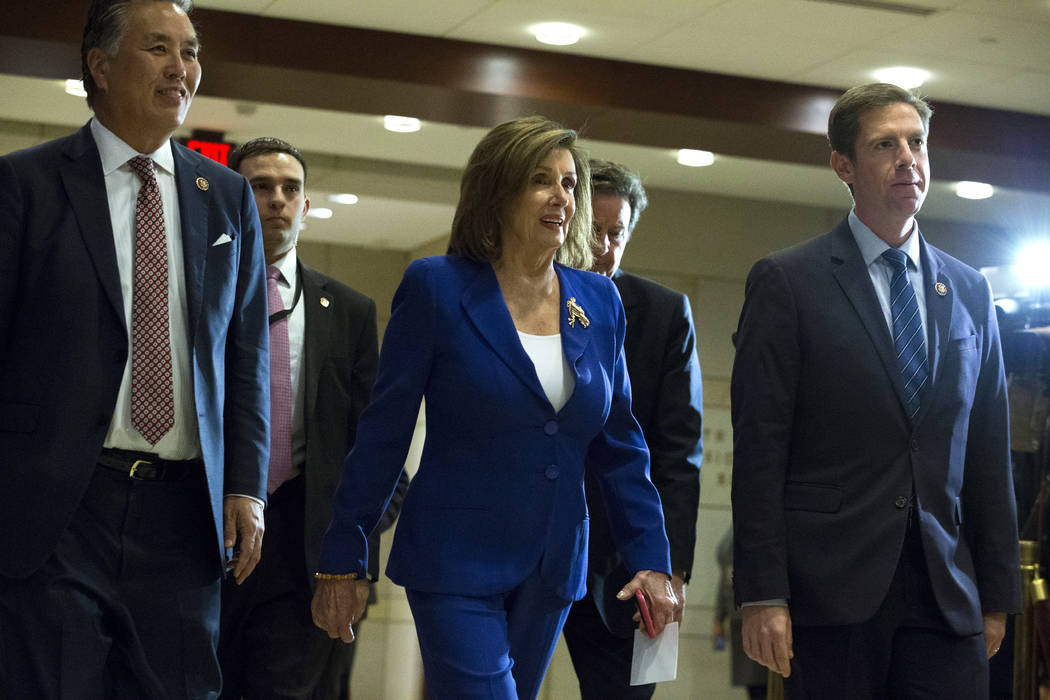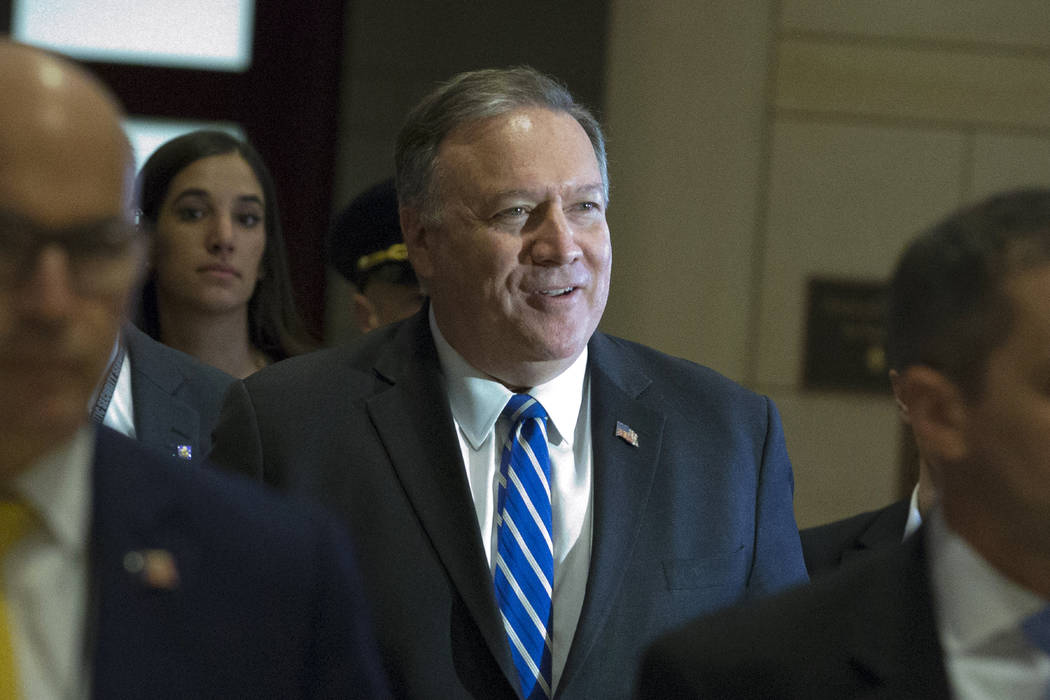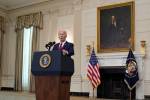Nancy Pelosi calls for vote on war powers resolution
WASHINGTON — House Speaker Nancy Pelosi called for a vote on a war powers resolution after Democrats came away disgruntled from a briefing Wednesday by national security officials about the Trump administration’s military action regarding Iran.
The briefing and the decision by Pelosi to hold a Thursday vote on the resolution came after President Donald Trump spoke to the nation at the White House to temper the tension following an Iranian missile strike on U.S. bases in Iraq.
The Iranian missiles were reprisal for a Jan. 2 U.S. drone attack that killed Iranian Maj. Gen. Qassem Soleimani, head of the elite Quds Force of the Islamic Revolutionary Guard Corps, which has been designated by the United States as a terrorist organization because of attacks that have killed U.S. service members.
Trump’s comments, and the briefing by national security officials on Capitol Hill, left Republican and Democratic lawmakers sharply divided on the administration’s justification and timing of the drone attack, and policy moving forward toward Iran.
“The threat from Iran is far more serious today than it has been in recent memory,” said Rep. Dina Titus, D-Nev., a member of the House Foreign Affairs Committee.
Titus said Iran has announced it will no longer abide by a nuclear weapons agreement negotiated by the Obama administration, “and President Trump has no long-term strategy to stop Iran from obtaining a nuclear weapon.”
In November, Iran resumed uranium enrichment at its underground Fordow facility. The U.S. sees the highly fortified facility as one meant to foster the development of nuclear weapons.
Enemy combatant and terrorist
Republicans were pleased with the president’s tone in his address to the nation, lowering the rhetoric and restoring calm following a 24-hour period of military escalation and missile strikes. There were no U.S. casualties.
They also said the administration was justified in the drone strike that killed Soleimani, noting his long history of attacks on U.S. military personnel and terrorist plots against America and its allies. The strike came after a U.S. contractor was killed in Iraq and the U.S. embassy in Baghdad was attacked by Iranian-backed militias late last month.
“I think the description of this guy as an enemy combatant and an international terrorist is an accurate description,” said Rep. Mark Amodei, R-Nev.
Amodei said the president’s appearance Wednesday was reassuring that “we’re in pretty good shape” with an adversary in the Middle East that has been threatening the region for the past 40 years.
Iran has long vowed to destroy Israel.
“We haven’t lost sight of the long-term goals,” Amodei said.
And Trump’s television appearance may have diminished public support for Pelosi’s call for an urgent vote on a resolution that limits the administration’s ability to act militarily against Iran without congressional approval.
“I don’t think she’s stronger after this morning,” Amodei said of Pelosi’s position.
Unanswered questions
Pelosi, in announcing the Thursday vote on the war powers resolution, said the president and national security officials failed to adequately answer questions and address concerns by lawmakers about the imminent threat that justified the drone strike and military escalation.
The resolution would require the president to cease all military action against Iran over the next 30 days unless Congress votes to approve it.
Even with House passage, the resolution would face stiff opposition in the Republican-controlled Senate, where GOP leaders praised the president for the drone strike and his resolve in response to Iranian retaliation.
“Taking out Soleimani was a positive step,” Sen. Ted Cruz, R-Texas, told reporters after the national security briefing.
Nevada’s Democratic Sens. Catherine Cortez Masto and Jacky Rosen, however, remained concerned about the administration’s actions and plans to move forward.
Cortez Masto said national security officials abruptly ended the briefing with senators, “leaving many questions unanswered.”
She said those unanswered questions include the president’s long-term strategy and objectives for Iraq, how he plans to deter future attacks and what actions he’ll take to keep U.S. military personnel in the region safe.
“I expect officials to return to give senators a full account of their plans,” Cortez Masto said.
Repeal old Iraq resolution
Meanwhile, in the House, Rep. Steven Horsford, D-Nev., called for the repeal of the 2002 authorization for the use of military force in Iraq resolution that allowed the Trump administration to act without first notifying Congress of the drone strike used to kill Soleimani.
“Allowing this administration continued access to the powers of the AUMF puts our brave men and women in uniform at great risk,” Horsford said.
The House Foreign Affairs Committee has called on Secretary of State Mike Pompeo to testify about the administration’s policy on Iran at a hearing next Tuesday.
Titus said she is unsatisfied with the briefing by national security officials. She said the president and the administration owe the American people evidence that Soleimani was planning an imminent attack.
She said as a member of the Foreign Affairs Committee she would “demand that evidence.”
Contact Gary Martin at gmartin@reviewjournal.com or 202-662-7390. Follow @garymartindc on Twitter.































